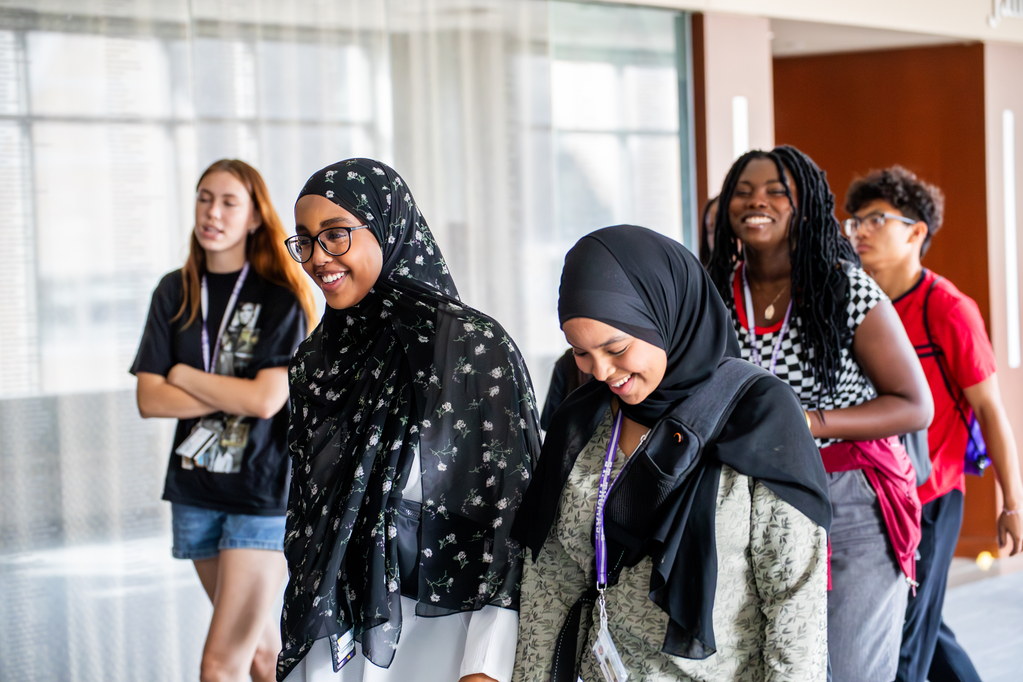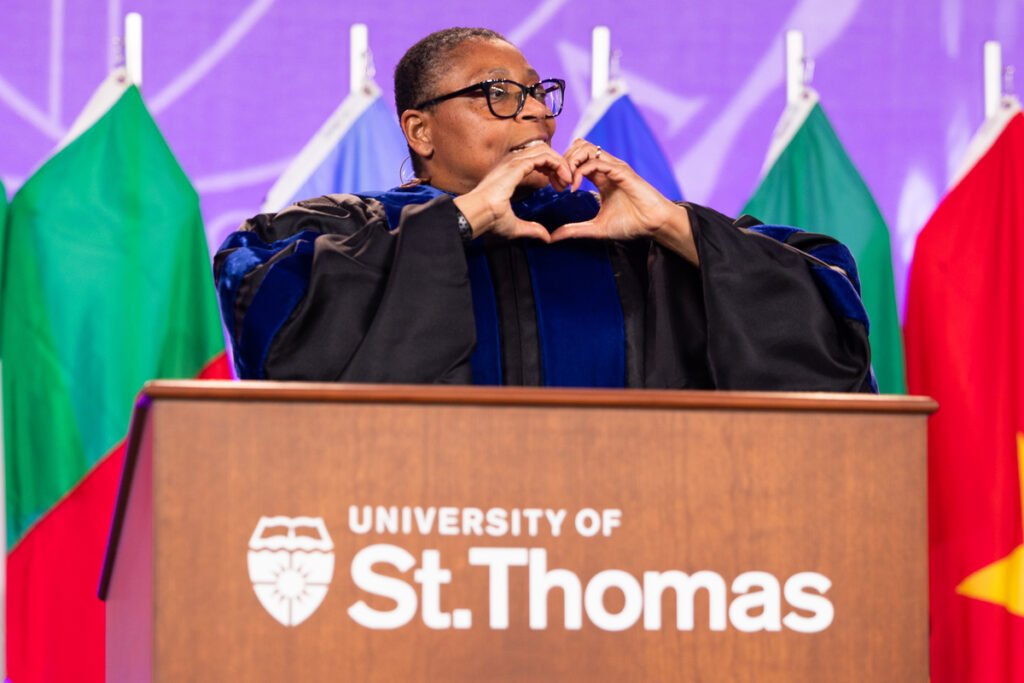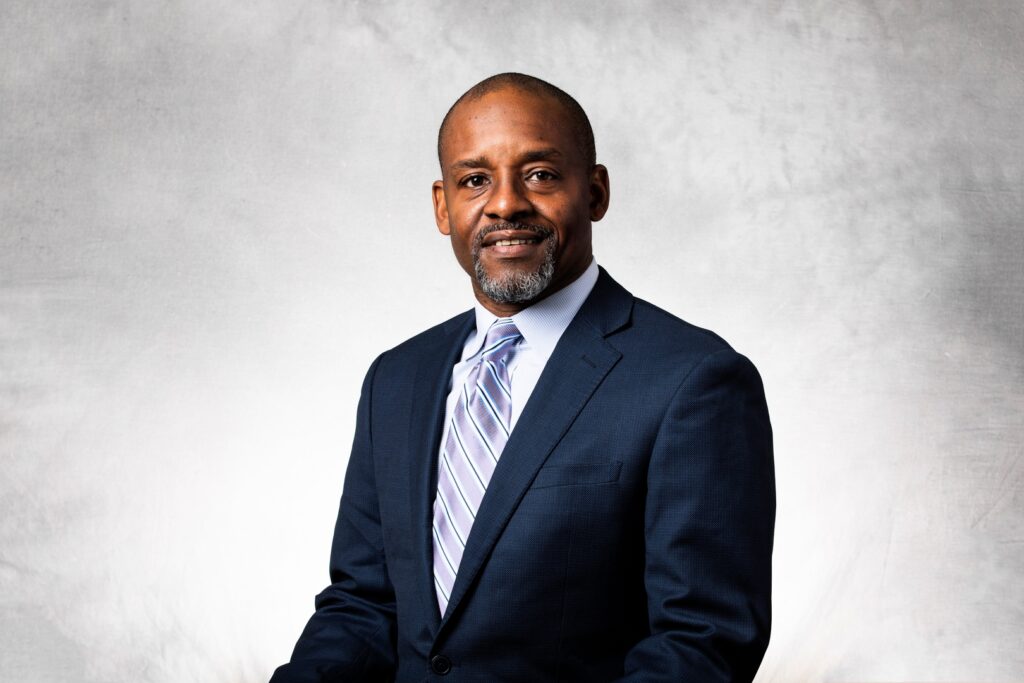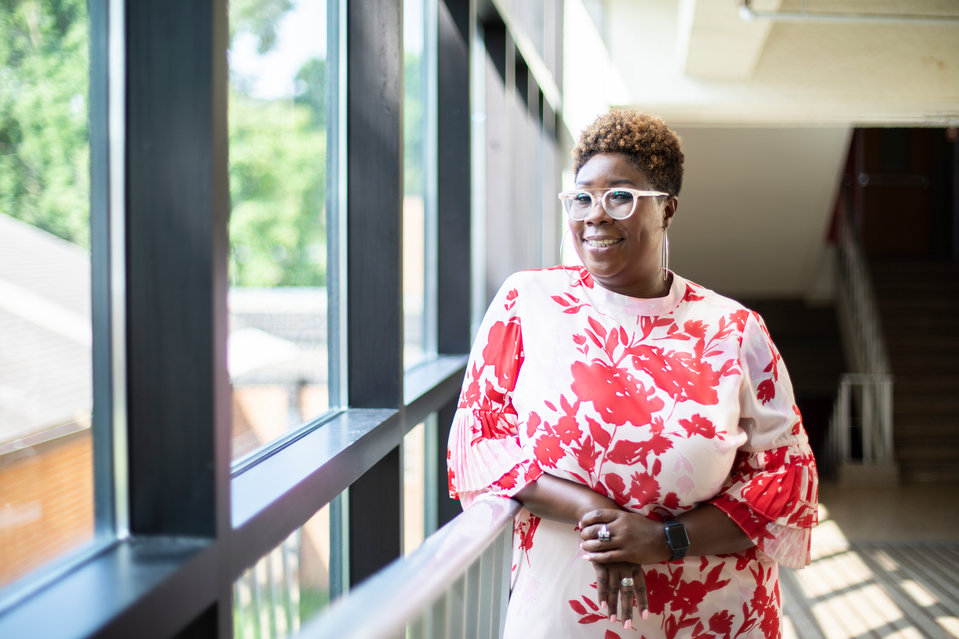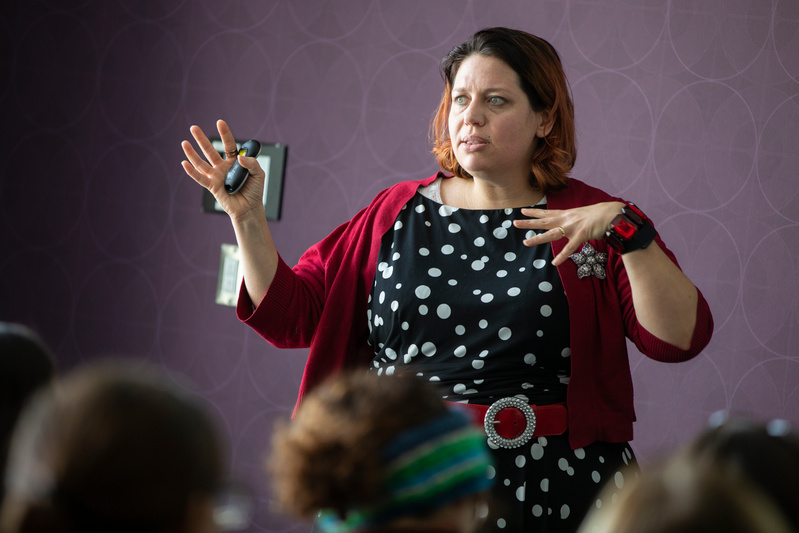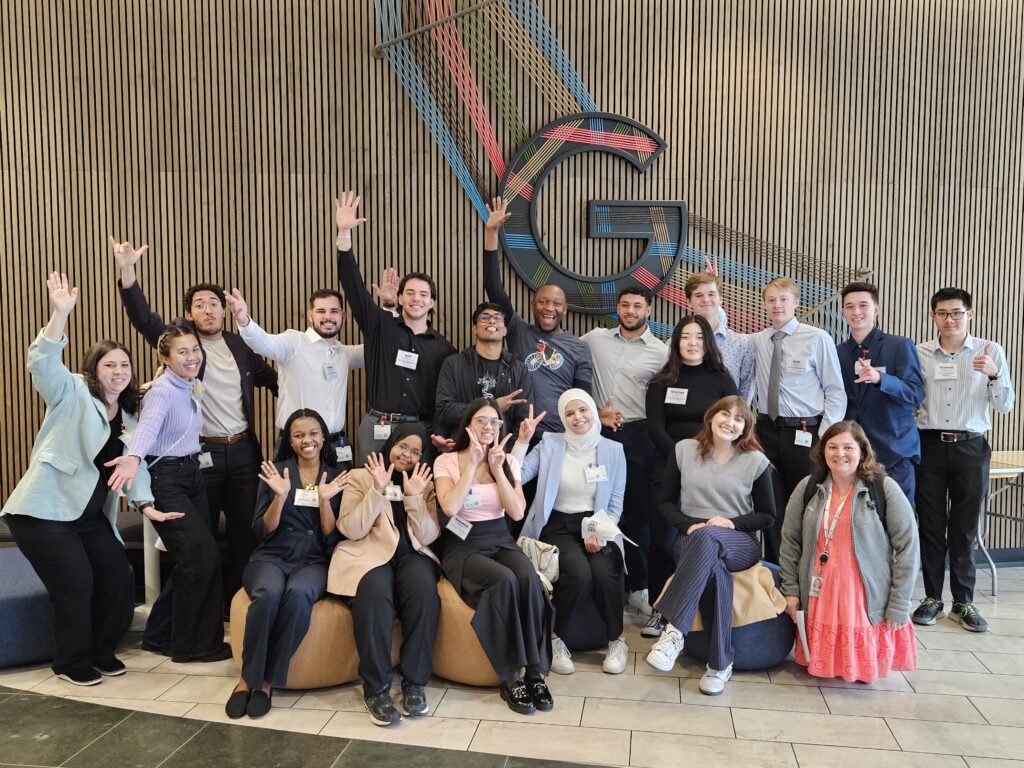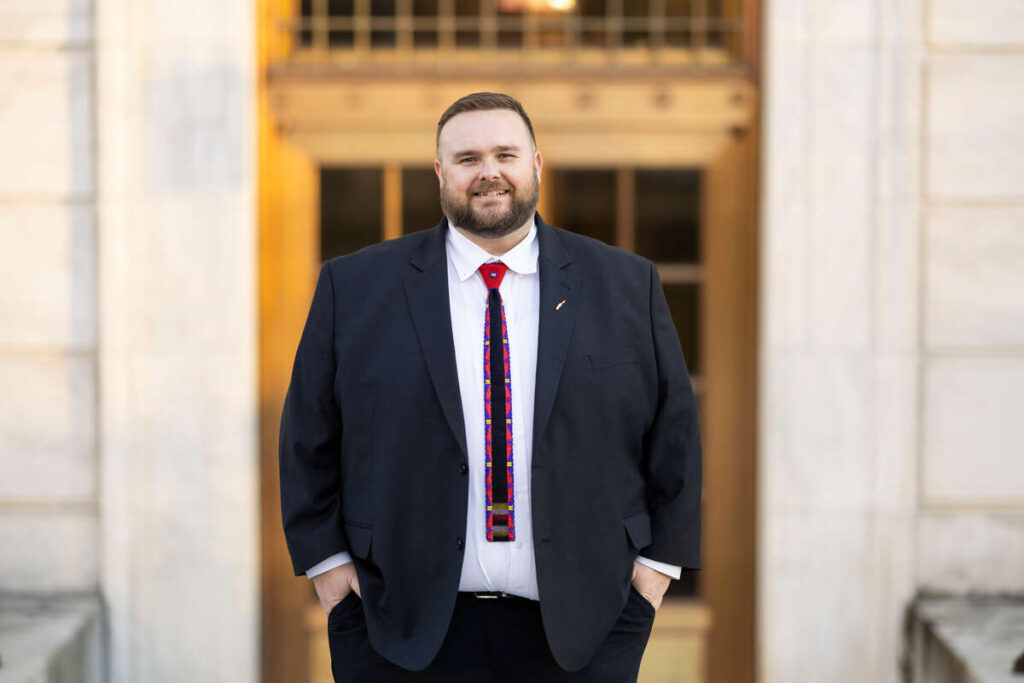Buffy Smith, dean of the Dougherty Family College (DFC) at the University of St. Thomas, was adamant in her meetings with Star Tribune higher education reporter Liz Navratil about the goal of the college’s Summer Enrichment Program: “They already know how to survive. We are helping to make sure they know how to thrive.”
And that idea was the theme of the Star Tribune’s front-page story this Labor Day, which included input from multiple DFC students and faculty, including Carla Gonzalez and Brad Pulles.
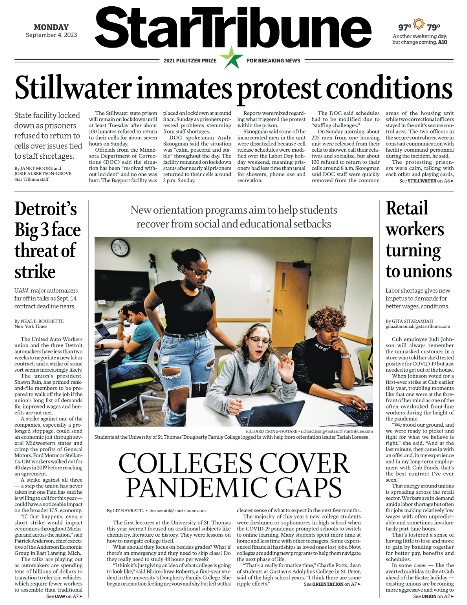
From the story:
The first lectures at the University of St. Thomas this year weren’t focused on traditional subjects like chemistry, literature or history. They were lessons on how to navigate college itself.
What should they focus on besides grades? What if there’s an emergency and they need to skip class? Do they really need to study 48 hours per week?
“I think it’s just giving an idea of what college is going to look like,” said Bibireoluwa Roberts, a first-year student in the university’s Dougherty Family College. She began orientation feeling nervous and shy but left with a clearer sense of what to expect in the next few months.
The majority of this year’s new college students were freshmen or sophomores in high school when the COVID-19 pandemic prompted schools to switch to online learning. Many students spent more time at home and less time with other teenagers. Some experienced financial hardships as loved ones lost jobs. Now, colleges are adding new programs to help them navigate the next phase of life. ...
‘Make or break for students’
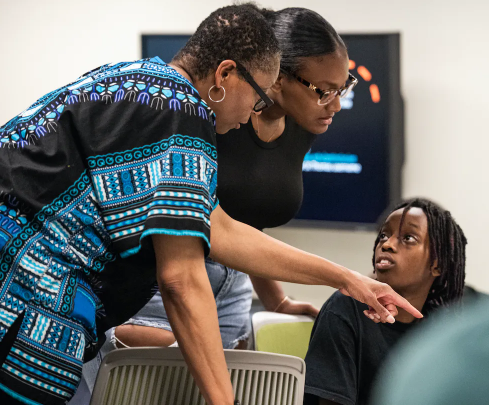
The Dougherty Family College has made its own tweaks to orientation over the years. The length of the program has changed from two weeks to one week, and back again. This year, most sessions were offered between 9:30 a.m. and 2 p.m. to leave time for students to work in the evenings.
“We recognize that this first experience can be make or break for students,” said Brad Pulles, associate dean of students.
The college offers a two-year program that allows students to earn an associate degree and aims to smooth their transition to a four-year college in hopes that they’ll eventually earn a bachelor’s degree. The majority of students are people of color, and the majority are the first in their family to go to college.
Brad pulles, associate dean of students, dougherty family collegeWe recognize that this first experience can be make or break for students.
Carla Gonzalez, the college’s literacy specialist, told students gathered in an auditorium last week about her own experiences as a first-generation college student.
“I didn’t know what to do. I didn’t have family to tell me,” she said.
She told students about the requirements for scholarships and how many hours they’d likely need to study to earn those high grades. She asked them to think about how they define success and what types of things worry them. And she also sought to reassure them they could complete the program if they put in the work and ask for help when they need it: “If you already knew how to do these things, you wouldn’t have to come to college, right?”
Shamarr Martin, a Columbia Heights high school graduate, began the week feeling nervous about starting college but also “excited for a new chapter in my life.” Halfway through, orientation, he was beginning to feel better, confident that he could still be his calm self and also succeed.
That’s exactly what Dean Buffy Smith hopes students will take away from orientation. She repeatedly tells them she wants them to “thrive in college and not just survive.”
